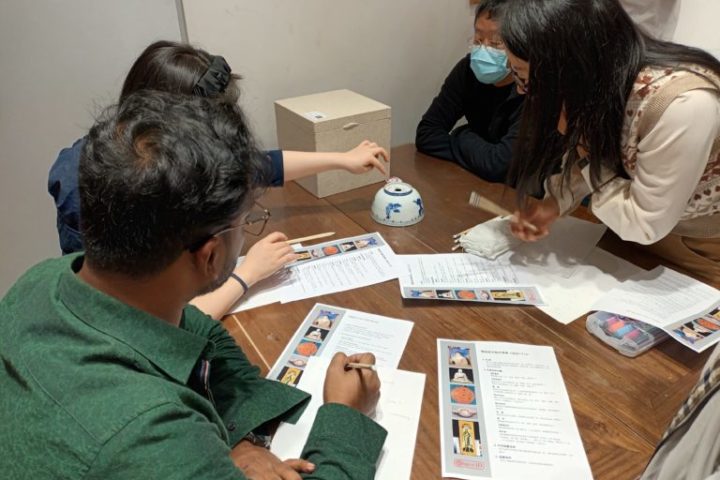The next workshop of the ICOM International Training Centre for Museum Studies (ICOM-ITC), will be held in Beijing, China, from 8 to 17 April 2025.
In this 16th edition of the training programme, Chinese and international participants and lecturers will explore how integrating various perceptions of collections can enhance participation and knowledge sharing. It will focus on how museum professionals can foster inclusive exchanges that engage both the general public and specific social groups and communities.
The programme will follow the ICOM-ITC training method, which combines practice and theory with lectures, group work, discussions, visits to local museums, and a full-day excursion to cultural heritage sites around the capital.
CALL FOR APPLICATIONS – CRITERIA
Only ICOM members meeting the following criteria can apply to this programme:
- Being an ICOM member in good standing, which means having paid their ICOM individual membership dues for two consecutive years including the current year of application (i.e. 2023 and 2024) or, in the case of a new or reinstated ICOM membership, having paid membership dues for the year of application (i.e. 2024);
- Occupying middle-management position in a recognised museum or public institution;
- Aged 45 years or under, by 31 December 2025;
- Being fluent in both written and spoken English.
The ICOM-ITC training workshops are intended primarily for ICOM members from emerging countries but applicants from other countries might be considered.
DOCUMENTS
Applications must be accompanied by the following information in English:
- A Curriculum Vitae of the applicant indicating training, work experience, publications and current work responsibilities (one page maximum);
- A fully completed Application Form (see below);
- A motivation statement;
- A letter of recommendation from the director of the applicant’s institution;
- Proof of payment of 2024 membership fees (copy of the card with 2024 sticker or official document from the National Committee);
- A copy of the first page of the applicant’s passport. IMPORTANT: Your passport needs to be valid at least until 30 November 2025;
- Motivation statement answering to the following three questions:
- How do your current responsibilities relate to the topic of the workshop? (1500 characters maximum)
- What kind of knowledge and skills do you expect to get from the programme? (1500 characters maximum)
- How could the training workshop strengthen the projects and activities your museum are currently developing or planning to develop? (1500 characters maximum)
All applications should be submitted through the online form before midnight (CET+1), November 30th, 2024.
TYPES OF GRANTS
ICOM, ICOM China and the Palace Museum award two types of grants:
The full grant covers an economy-class air ticket, accommodation, and local hospitality for the participant for the duration of the training workshop. Applicants residing in countries belonging to categories 2, 3, 4 and 5, as defined in the ICOM membership grid, are given priority for this type of grant.
The partial grant covers accommodation and local hospitality for the participant for the duration of the training workshop. Applicants residing in countries belonging to category 1, as defined in the ICOM Membership grid, will be considered for partial grants.
ICOM or the Palace Museum will make the travel arrangements for participants with a full grant. Participants with a partial grant must book their own air ticket. Visa costs, insurance coverage and other expenses not explicitly stated above are at the cost of the participants. There are no registration fees for attending the training seminar.
ABOUT ICOM-ITC
The ICOM International Training Centre for Museum Studies (ICOM-ITC), housed at the Palace Museum in Beijing, China, is a collaboration between ICOM, ICOM China and the Palace Museum. By providing inclusive and participatory training programmes for museum professionals, the centre is intended to “promote research and exchange among museums at an international level and develop the museum expertise of professionals from developing countries, especially those from the Asia-Pacific region,” where the museum sector is growing rapidly and there is a high demand for museum professionals.
